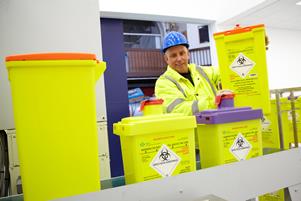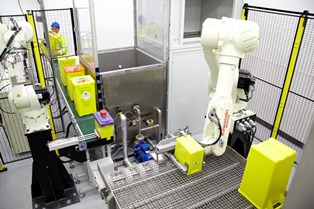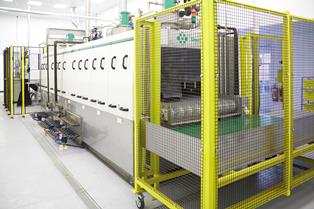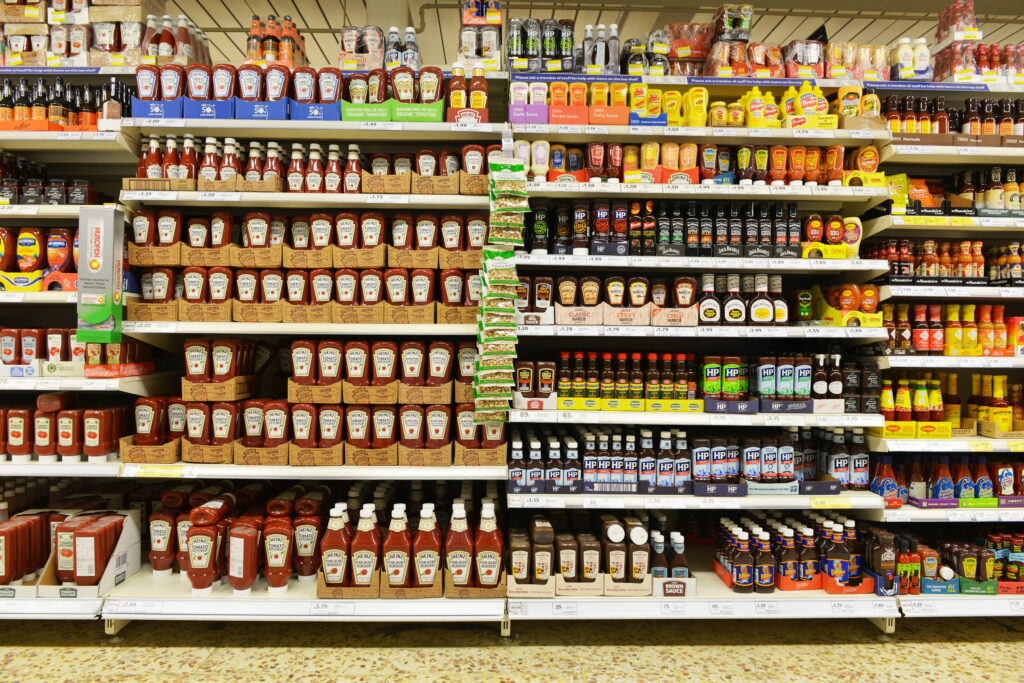Rigorous safety is paramount in hospitals in order to stop the spread of disease and infections, but this has also caused problems for treating healthcare waste, which is often difficult to recycle safely.

However, new technology used by healthcare services provider SRCL is enabling reusable plastic containers known as Bio Systems filled with sharps waste to be safely reused up to 600 times.
Part of the US-based Stericycle Inc Group, the firm recently launched its 1 million Sharps Management Service for the sustainable disposal of hospital sharps waste at its Knostrop site in Leeds.
The technology is the companys first in the UK, although similar systems have been used in the USA and Canada for nearly 25 years in the and also in Ireland since 2010.
The Bio Systems machine is a surprisingly compact one, taking up only a few square metres at the Knostrop site, yet it is capable of processing around 500,000 containers a year.
It uses state-of-the-art robotics and an automated wash line to empty and disinfect reusable containers with sharps waste such as needles, scalpels and scissors taken from hospitals and medical centres across the UK.
Crucially, while large numbers of plastic containers used for hazardous sharps and healthcare waste are often sent to an incinerator after a single use, SRCLs technology enables each container to be fully cleaned and reused up to 600 times. At the end of this lifespan, too, the containers themselves of 7.5, 15 or 30-litre sizes are fully recycled.
The two major factors in using this system are the added safety it provides for healthcare workers and patients, but also the associated sustainability, says Natalie Gee, SCRLs product manager.
She says the system can help the NHS and private healthcare organisations meet 2020 waste targets in the EU Waste Framework Directive, while also helping them to comply with the EU Directive (2010/32/EU) on the prevention of sharps injuries in the hospital and healthcare sector.
Injury prevention
As part of SRCLs sharps service, trained staff from the company deliver, locate and exchange the containers from hospitals and other customer premises. With SRCL staff also delivering filled containers for processing at the Bio Systems site in Leeds, the service is designed to limit the need for healthcare staff to handle containers and put themselves at a risk of needlestick injuries as much as possible.

Natalie Gee adds: Preventing needlestick injuries is a constant aim for health trusts. Even one needlestick injury is too many and the Sharps Management Service helps minimise this risk. This, coupled with the environmental advantage of reusing the containers, provides all round benefits.
Furthermore, containers are designed so that they can be easily fixed onto wall brackets or hospital trolleys, while strict instructions on each container stipulate that they should not be filled with waste above a specified line in order to further minimise the chance of someone coming into contact with disposed sharps. The disposal opening at the top of each container is also designed to limit hand access.
Process
Once the filled containers are delivered to the Leeds site, staff simply place the containers one-by-one onto the Bio Systems conveyor belt and the impressive robotic arms do the rest.
‘The whole process from placing one container onto the conveyor belt to it coming out the other end fully empty, distinfected and ready to use again takes a matter of minutes’
Alan Chambers, SRCL Bio Systems operator
The arms first pick up each container on the line, open them, empty the contents and place them upside down so that they can be thoroughly washed and disinfected. Again, this ensures that no human contact is made with the containers while they are being emptied and cleaned.
The decanted sharps waste is then sent to SRCLs incinerator next door, which provides steam to power the Bio Systems wash line as well as heat for the rest of the site. The incinerator currently also processes more than 16,000 tonnes of various healthcare waste per year from the region, with a capacity to generate more than seven tonnes of steam per hour.
Meanwhile, before being reused, the plastic sharps containers are sent through a rigorous cleaning system, which SRCL Bio Systems operator Alan Chambers likens to a large washing machine.
The water used in the washing and disinfection process is also safely treated at Yorkshire Waters filtration plant next door.

The whole process from placing one container onto the conveyor belt to it coming out the other end fully empty, distinfected and ready to use again takes a matter of minutes, says Mr Chambers. At the moment were probably processing something in the region of 350 containers during an eight hour shift.
According to Mr Chambers, the Bio Systems wash line is continuously checked and independent validation has shown that the cleanliness of the containers is even higher than the minimum stipulated by regulatory standards.
While the technology was launched by SRCL in November 2012, the firm has only been out on the market for customers since January this year.
Furthermore, Natalie Gee says SRCL is currently in talks with many more potential customers for its Sharps Management Service and hopes further Bio Systems technology will be rolled out at some of the firms 30 other sites across the UK.
We will definitely use the technology throughout the country, she says. It is something we are looking at, but for us it is more a matter of when, not if.









Subscribe for free